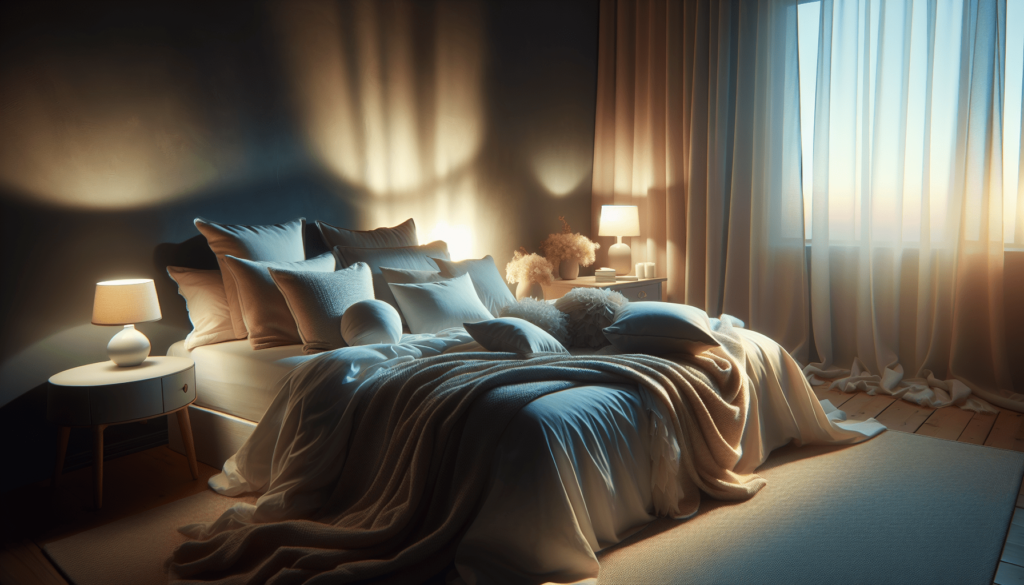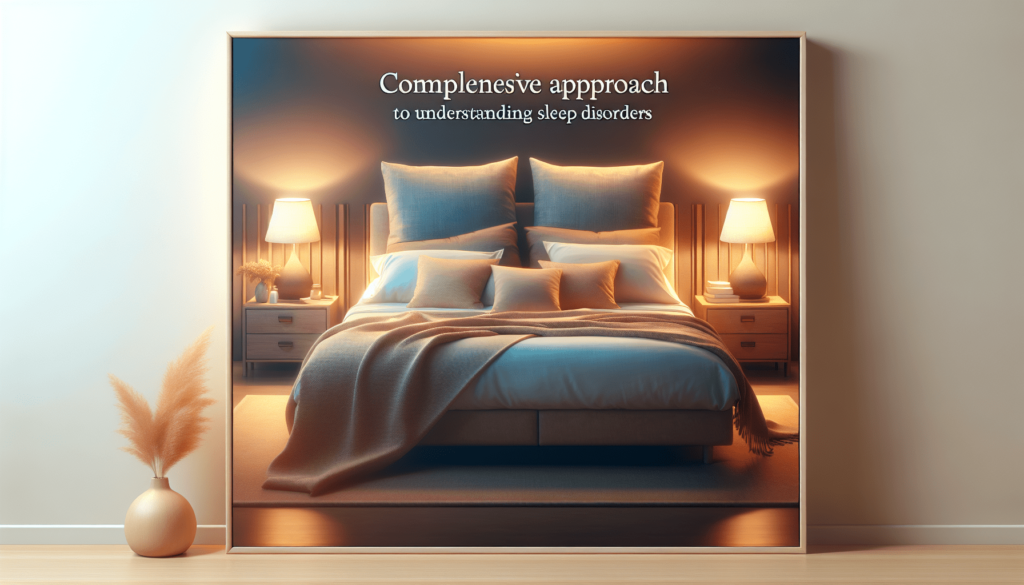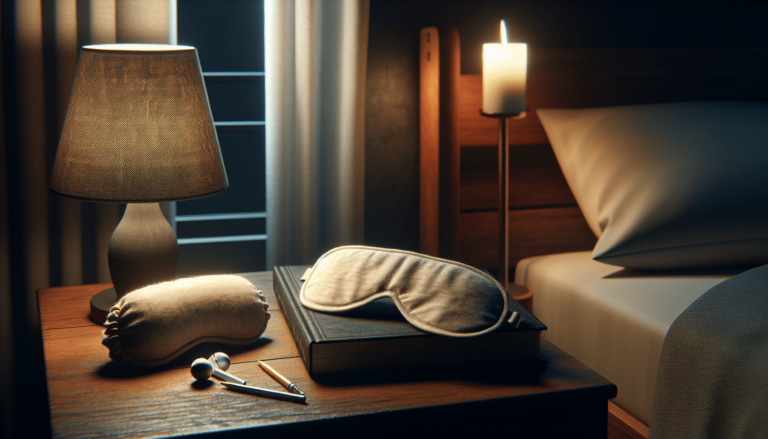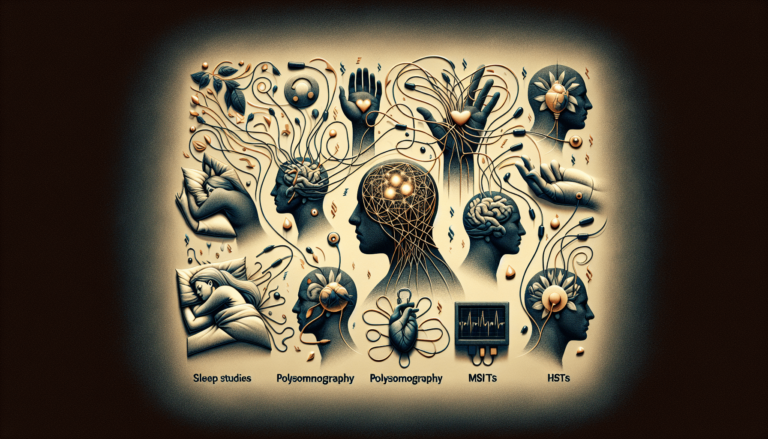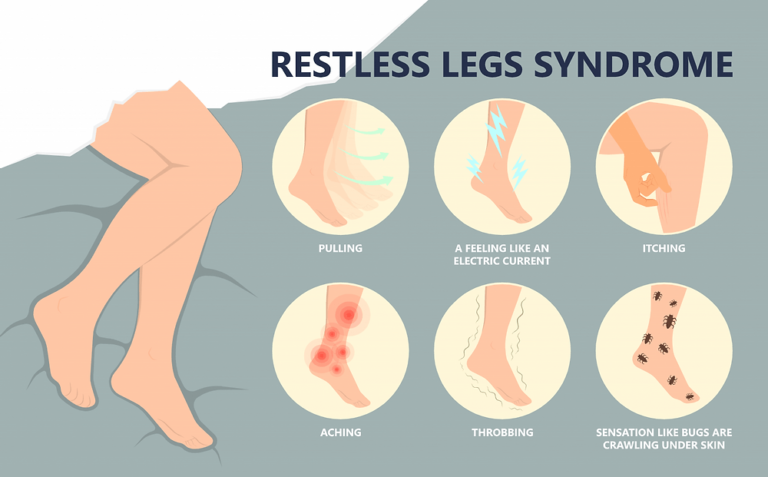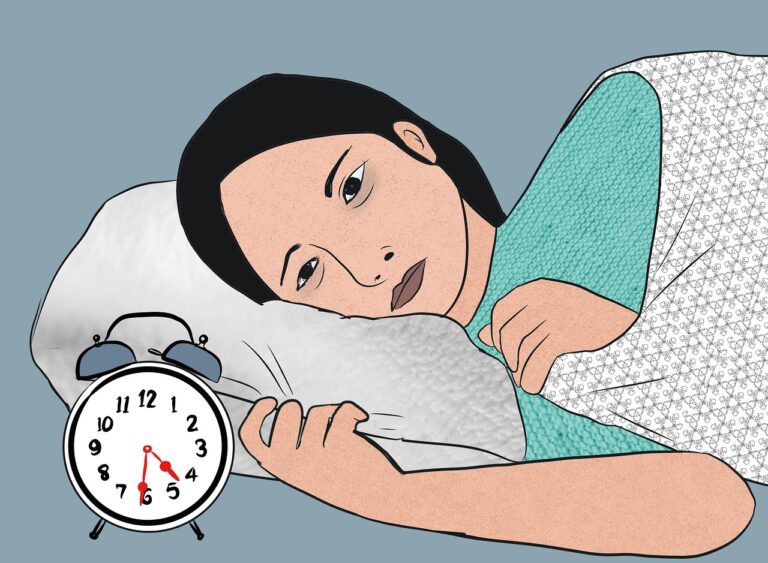Understanding and Treating Sleep Disorders: Vector Sleep Clinic’s Comprehensive Approach
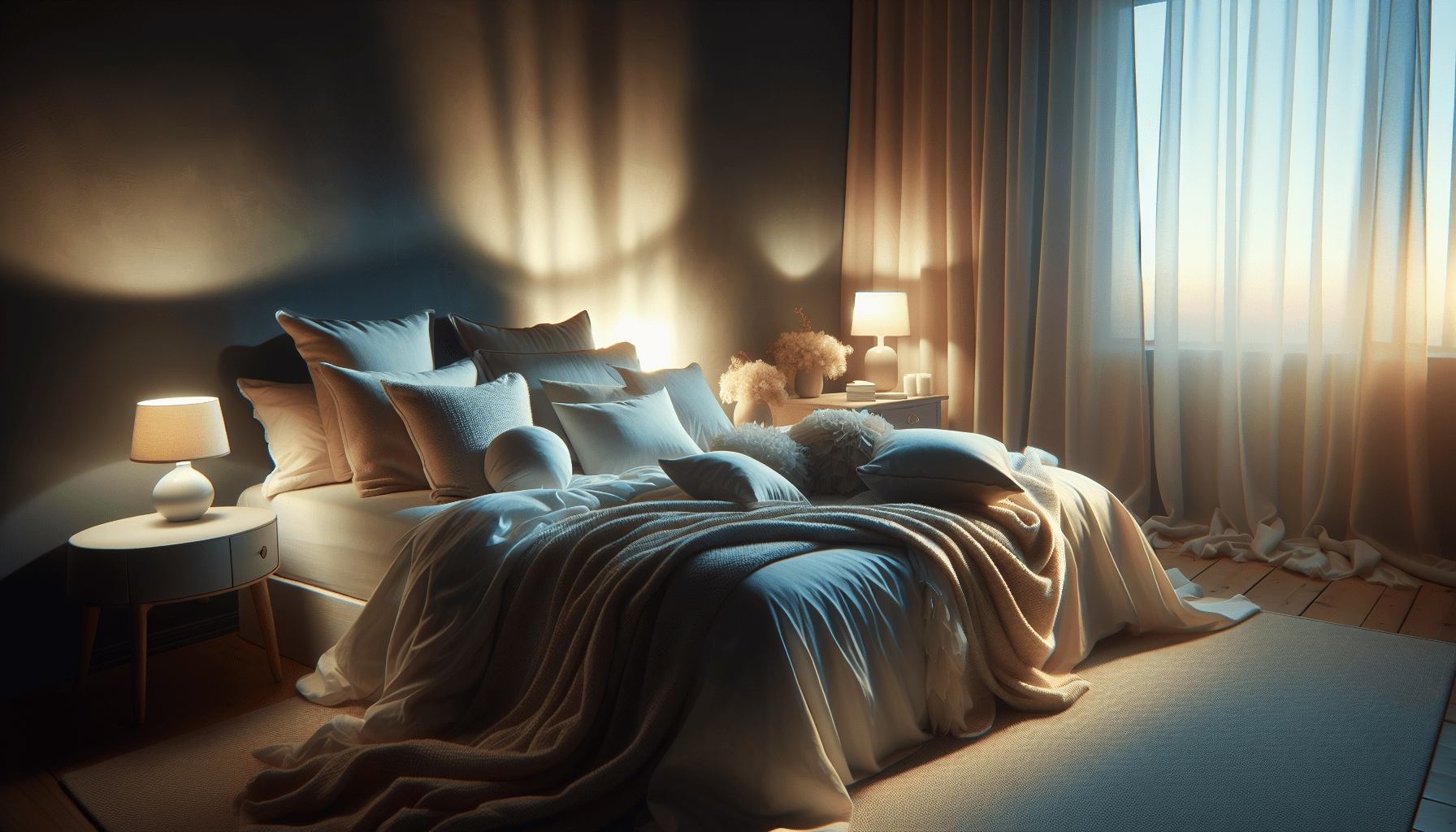
Experience the transformative power of a good night’s sleep with Vector Sleep Clinic. Sleep disorders have become all too common in our fast-paced lives, causing a multitude of health issues and impairing our overall well-being. Through their licensed and insured services, Vector Sleep Clinic offers reliable and trustworthy solutions to help you overcome these challenges. By understanding the gravity of sleep disorders and their potential consequences, a comprehensive approach is taken to diagnose and treat conditions such as insomnia, sleep apnea, and more. Don’t let sleep disorders jeopardize your health and productivity any longer – choose Vector Sleep Clinic for a rejuvenating and uninterrupted sleep experience.
Understanding Sleep Disorders
The impact of today’s fast-paced life on sleep
In today’s fast-paced society, it can be challenging to prioritize sleep. With demanding work schedules, constant connectivity, and a multitude of other responsibilities, many people find themselves sacrificing sleep in order to keep up with their daily lives. However, this lifestyle can have a significant impact on our overall well-being and can lead to the development of sleep disorders.
Lack of sleep or poor sleep quality can affect various aspects of our lives, including our physical health, mental well-being, and cognitive functions. Chronic sleep deprivation can lead to fatigue, decreased productivity, mood disturbances, and impaired concentration. It can also weaken the immune system, increase the risk of chronic diseases such as diabetes and cardiovascular disorders, and even contribute to weight gain.
Types of sleep disorders
Sleep disorders encompass a wide range of conditions that affect the quality and quantity of our sleep. Some common types of sleep disorders include:
- Insomnia: characterized by difficulty falling asleep, staying asleep, or experiencing non-restorative sleep.
- Sleep apnea: a condition where breathing repeatedly stops and starts during sleep, leading to disrupted sleep and daytime sleepiness.
- Restless legs syndrome (RLS): a neurological disorder characterized by uncomfortable sensations in the legs and an irresistible urge to move them, often disturbing sleep.
- Narcolepsy: a neurological disorder that causes excessive daytime sleepiness and sudden episodes of sleep attacks.
- Circadian rhythm disorders: disruptions in the body’s internal clock, leading to difficulties in falling asleep or maintaining a regular sleep-wake cycle.
- Parasomnias: abnormal behaviors or movements during sleep, such as sleepwalking, nightmares, and night terrors.
Common health risks associated with sleep disorders
Sleep disorders can have a profound impact on our overall health and well-being. If left untreated, these conditions can contribute to various health risks, including:
- Cardiovascular problems: Sleep disorders, particularly sleep apnea, have been associated with an increased risk of high blood pressure, heart attacks, strokes, and irregular heart rhythms.
- Mental health disorders: Chronic sleep disturbances can increase the risk of developing mental health conditions such as depression, anxiety, and bipolar disorder.
- Decreased immune function: Lack of quality sleep can weaken the immune system, making individuals more susceptible to infections and illnesses.
- Impaired cognitive function: Sleep deprivation can negatively affect memory, attention, decision-making, and problem-solving abilities. It can also impair learning and creativity.
- Increased risk of accidents: Sleep disorders, especially those causing excessive daytime sleepiness, can increase the risk of accidents at work or while driving.
- Weight gain and metabolic disorders: Poor sleep can disrupt hormonal regulation, leading to an increased appetite, cravings for high-calorie foods, and a higher risk of obesity and diabetes.
Importance of Completing a Sleep Study
Identifying underlying sleep issues
Completing a sleep study, also known as a polysomnography, can be a crucial step in diagnosing and understanding an individual’s sleep disorder. Sleep studies involve monitoring various physiological processes during sleep, including brain activity, eye movements, heart rate, and breathing patterns. By analyzing the data collected from a sleep study, sleep specialists can identify any underlying issues causing disruptions in sleep.
Sleep studies can provide valuable insights into the specific nature of a sleep disorder and its potential causes. For example, they can help determine if the individual has obstructive sleep apnea, central sleep apnea, or a combination of the two. This information is vital when developing an effective treatment plan tailored to the individual’s needs.
Preventing serious health complications
Completing a sleep study can also help prevent the development of serious health complications associated with sleep disorders. If left untreated, sleep disorders can contribute to the development of cardiovascular diseases, diabetes, stroke, and other chronic conditions. By identifying and addressing these disorders early on, individuals can significantly reduce their risk of experiencing these health complications.
Improving overall quality of life
One of the most significant benefits of completing a sleep study and receiving appropriate treatment is the improvement in the overall quality of life. A good night’s sleep is essential for our physical and mental well-being. When sleep disorders are properly managed, individuals often experience increased energy levels, improved mood, enhanced cognitive function, and better overall productivity. Restful and restorative sleep allows individuals to wake up feeling refreshed, rejuvenated, and ready to tackle the day ahead.
Vector Sleep Clinic’s Expertise
Licensed and insured sleep specialists
At Vector Sleep Clinic, we take pride in our team of licensed and insured sleep specialists who have extensive knowledge and expertise in diagnosing and treating sleep disorders. Our specialists have undergone rigorous training and education in the field of sleep medicine, ensuring that they stay at the forefront of advancements and best practices in the industry. When you choose Vector Sleep Clinic, you can trust that you are receiving care from professionals who are committed to providing the highest standard of quality and expertise.
Years of experience in diagnosing and treating sleep disorders
With years of experience in the field, our sleep specialists at Vector Sleep Clinic have encountered a wide range of sleep disorders and have developed a deep understanding of their complexities. This experience allows them to accurately diagnose and effectively treat various sleep disorders, tailoring treatment plans to each individual’s unique needs. We believe that the combination of expertise and experience is key to achieving positive and long-lasting outcomes for our patients.
A comprehensive range of diagnostic tools and services
At Vector Sleep Clinic, we offer a comprehensive range of diagnostic tools and services to ensure that we provide accurate and thorough assessments of our patients’ sleep health. Some of the diagnostic tools and services we provide include:
- Polysomnography: also known as an in-lab sleep study, this comprehensive test measures various physiological parameters during sleep to evaluate sleep quality, breathing abnormalities, and other potential sleep disorders.
- Home sleep apnea testing: a more convenient alternative to in-lab sleep studies, home sleep apnea testing allows individuals to monitor their sleep in the comfort of their own homes while still providing valuable data for diagnosis.
- Actigraphy: a non-invasive method of monitoring sleep-wake patterns over an extended period, providing insights into circadian rhythm disorders and other sleep-related conditions.
- Multiple Sleep Latency Test (MSLT): a daytime test that measures how quickly an individual falls asleep in a quiet and relaxing environment, helping to assess excessive daytime sleepiness and narcolepsy.
- Maintenance of Wakefulness Test (MWT): a daytime test that measures an individual’s ability to stay awake in a quiet and non-stimulating environment, aiding in the evaluation of alertness and daytime sleepiness.
These diagnostic tools, combined with our specialists’ expertise, ensure that we can accurately diagnose sleep disorders and develop personalized treatment plans.
Diagnostic Tools and Services
Polysomnography: In-lab sleep study
Polysomnography, often referred to as an in-lab sleep study, is a comprehensive diagnostic test that measures various physiological parameters during sleep. This test is typically conducted in a sleep clinic or laboratory and involves monitoring several key indicators, including brain activity, eye movements, muscle activity, heart rate, and breathing patterns. The data collected during polysomnography provides valuable information about an individual’s sleep stages, breathing abnormalities, and overall sleep quality.
During the polysomnography procedure, sensors and electrodes are attached to the individual’s body to monitor and record the physiological measurements. These measurements are then analyzed by sleep specialists, who can identify any underlying sleep disorders, such as sleep apnea, insomnia, or nocturnal seizures.
Polysomnography is especially beneficial when other diagnostic tools, such as home sleep apnea testing, do not provide sufficient data or when an accurate diagnosis requires a more detailed assessment. By conducting an in-lab sleep study, sleep specialists can gather comprehensive and accurate information about an individual’s sleep health, leading to an accurate diagnosis and targeted treatment plan.
Home sleep apnea testing
For individuals who prefer the comfort and convenience of monitoring their sleep at home, home sleep apnea testing is a viable alternative to in-lab sleep studies. Home sleep apnea testing involves the use of portable monitors that individuals can use in the comfort of their own beds.
The portable monitoring devices are easy to use and generally measure key parameters such as airflow, blood oxygen levels, and respiratory effort. Although home sleep apnea testing provides a simplified version of the data collected from an in-lab sleep study, it can still provide valuable information for diagnosing sleep apnea and guiding treatment decisions.
Using home sleep apnea testing is a less invasive and more cost-effective option for many individuals, particularly those with a high likelihood of having sleep apnea based on their symptoms. However, it is important to note that home sleep apnea testing may not be suitable for everyone, and in-lab sleep studies may still be necessary for a more accurate diagnosis in some cases.
Actigraphy: Monitoring sleep-wake patterns
Actigraphy is a non-invasive method of monitoring an individual’s sleep-wake patterns over an extended period, typically a week or longer. This diagnostic tool involves wearing a device, often worn like a wristwatch, that uses accelerometers to measure movement and light sensors to detect ambient light levels. By analyzing movement data and light exposure patterns, sleep specialists can assess an individual’s sleep-wake cycles, circadian rhythm, and overall sleep quality.
Actigraphy is particularly useful for evaluating sleep-related disorders such as circadian rhythm disorders, insomnia, and certain parasomnias. It can provide valuable insights into an individual’s sleep patterns and help pinpoint potential disruptions in their sleep-wake cycle. This information can guide treatment decisions and lifestyle modifications to improve sleep quality and overall well-being.
Multiple Sleep Latency Test (MSLT): Assessing daytime sleepiness
The Multiple Sleep Latency Test (MSLT) is a diagnostic tool used to evaluate daytime sleepiness and assess conditions such as narcolepsy. This test measures how quickly an individual falls asleep during quiet and relaxing daytime conditions. It involves taking multiple short naps throughout the day, typically at two-hour intervals, while monitoring brain activity, eye movements, and other physiological measurements.
During the MSLT, individuals are instructed to lie down in a quiet, dimly lit room and attempt to fall asleep. Sleep specialists analyze the data collected from each nap to determine the average time it takes for the individual to fall asleep. Shorter sleep onset latency times, or faster times to fall asleep, may be indicative of excessive daytime sleepiness or underlying sleep disorders.
The MSLT is a valuable tool in diagnosing conditions such as narcolepsy, as it helps differentiate between excessive daytime sleepiness caused by inadequate sleep or other factors and excessive daytime sleepiness caused by neurological sleep disorders.
Maintenance of Wakefulness Test (MWT): Evaluating alertness
The Maintenance of Wakefulness Test (MWT) is another diagnostic tool used to assess an individual’s ability to stay awake in a quiet and non-stimulating environment during the day. The MWT is often conducted after an MSLT to provide a comprehensive evaluation of an individual’s sleep-wake patterns and daytime alertness.
During the MWT, individuals are instructed to sit quietly in a dimly lit room and avoid engaging in any stimulating activities. Sleep specialists monitor the individual’s brain activity, eye movements, and other physiological measurements to determine their ability to stay awake over multiple sessions. A longer time to fall asleep during the MWT is indicative of better daytime alertness.
The MWT is particularly useful for evaluating professions with safety-sensitive tasks, such as commercial drivers or pilots, as it assesses an individual’s ability to maintain wakefulness during critical periods. It can also help assess the effectiveness of treatment interventions for sleep disorders, such as determining the optimal dosage of medication or evaluating the impact of lifestyle modifications on daytime alertness.
Treatment Options for Sleep Disorders
Continuous Positive Airway Pressure (CPAP)
Continuous Positive Airway Pressure (CPAP) is a commonly prescribed treatment for sleep apnea, a condition characterized by interruptions in breathing during sleep. CPAP therapy involves wearing a mask over the nose or mouth that delivers a continuous flow of pressurized air, keeping the airways open and preventing obstructions.
By maintaining continuous pressure in the airways, CPAP therapy effectively eliminates or reduces the frequency of breathing interruptions, allowing individuals to experience uninterrupted and restful sleep. It also helps alleviate symptoms such as snoring, daytime sleepiness, and morning headaches associated with sleep apnea.
CPAP machines come in various sizes and styles, allowing individuals to choose the most comfortable and suitable option for their needs. Regular follow-ups with sleep specialists are essential to ensure the adjustment of the CPAP settings and the ongoing effectiveness of therapy.
Bi-level Positive Airway Pressure (BiPAP)
Bi-level Positive Airway Pressure (BiPAP) therapy is another treatment option for sleep apnea. Similar to CPAP, BiPAP therapy involves wearing a mask that delivers pressurized air to keep the airways open. However, BiPAP machines provide two levels of pressure: a higher pressure during inhalation and a lower pressure during exhalation.
BiPAP therapy is often prescribed for individuals who have difficulty adjusting to CPAP therapy or require higher pressure to effectively treat their sleep apnea. The two levels of pressure provided by BiPAP machines make breathing more comfortable and can be particularly beneficial for individuals with certain medical conditions, such as lung disease or congestive heart failure.
As with CPAP therapy, regular follow-ups and adjustments to the BiPAP settings are crucial to ensure optimal treatment outcomes.
Oral appliances
Oral appliances are custom-made devices that can help treat certain sleep disorders, such as snoring and mild to moderate obstructive sleep apnea. These appliances are typically worn in the mouth during sleep and work by repositioning the jaw, tongue, and soft tissues to keep the airways open.
Oral appliances are an alternative to CPAP and BiPAP therapy, particularly for individuals who find wearing a mask uncomfortable or challenging. Sleep specialists, often working in conjunction with dentists or oral health professionals, can assess an individual’s suitability for oral appliances and ensure proper fitting and effectiveness.
Regular follow-ups with sleep specialists are necessary to monitor the progress and determine the long-term efficacy of oral appliance therapy.
Medications
Medications may be prescribed to manage certain sleep disorders, such as insomnia or restless legs syndrome. Sleep medications can help regulate sleep-wake cycles, promote sleep onset, and improve overall sleep quality.
However, it is essential to note that medication should only be used under the guidance and supervision of a sleep specialist. Sleep medications are typically prescribed for short-term use or as part of a targeted treatment plan. Prolonged or unsupervised use of sleep medications can lead to dependence, tolerance, and adverse side effects.
Sleep specialists will carefully evaluate an individual’s sleep disorder, medical history, and potential medication interactions before prescribing any sleep medications. Regular follow-ups are necessary to monitor the effectiveness of the medication and adjust the treatment plan as needed.
Cognitive-behavioral therapy for insomnia (CBT-I)
Cognitive-behavioral therapy for insomnia (CBT-I) is a non-pharmacological treatment approach that focuses on addressing the underlying thoughts, behaviors, and lifestyle factors that contribute to insomnia. CBT-I aims to improve sleep hygiene, regulate sleep-wake patterns, and promote healthy sleep habits.
CBT-I typically involves a combination of various therapeutic techniques, including sleep education, relaxation training, stimulus control therapy, sleep restriction, and cognitive restructuring. These techniques help individuals develop effective coping strategies, manage stress, and establish a consistent sleep routine.
CBT-I is considered a highly effective treatment for insomnia, often providing long-lasting improvements in sleep quality and duration. It is typically delivered by trained sleep specialists or therapists through individual or group sessions.
Surgical interventions
In some cases, surgical interventions may be necessary to treat certain sleep disorders. Surgical options are typically considered when other treatments have not been effective or when there is a clear anatomical obstruction causing the sleep disorder.
For sleep apnea, surgical interventions may involve removing or repositioning excess tissue in the throat or creating an opening in the trachea to bypass obstructions. Surgical procedures for other sleep disorders aim to address specific underlying causes, such as repairing deviated nasal septums or correcting structural abnormalities in the airways.
Surgical interventions for sleep disorders are typically considered a last resort after more conservative treatment options have been explored. Sleep specialists will thoroughly evaluate an individual’s condition and medical history to determine the most appropriate approach to treatment.
Personalized Treatment Plans
Customized treatment plans based on individual needs
At Vector Sleep Clinic, we believe in the importance of tailored treatment plans that address each individual’s unique needs and circumstances. We understand that sleep disorders can vary significantly from person to person, and as such, a one-size-fits-all approach may not be effective. Our sleep specialists take the time to thoroughly evaluate each patient, considering their medical history, sleep study results, lifestyle factors, and personal preferences.
Based on this comprehensive assessment, our sleep specialists develop personalized treatment plans that may include a combination of treatment modalities, lifestyle modifications, and behavioral interventions. We prioritize open and honest communication with our patients, involving them in the decision-making process and ensuring that their treatment aligns with their goals and preferences.
Collaborative approach involving patients in decision-making
We strongly believe in the importance of involving patients in the decision-making process when it comes to their sleep disorder treatment. We understand that each individual has unique preferences, concerns, and priorities, and we strive to create a collaborative environment where patients feel heard and empowered.
Our sleep specialists take the time to educate patients about their sleep disorder, treatment options, potential risks and benefits, and expected outcomes. We encourage open dialogue, allowing patients to ask questions, voice their concerns, and actively participate in the decision-making process. By involving patients in this way, we aim to ensure that their treatment plan is aligned with their values and goals.
Regular follow-ups and adjustments to ensure optimal results
At Vector Sleep Clinic, we are committed to providing ongoing support and care to help our patients achieve optimal results. We understand that sleep disorders can be complex and that treatment plans may require adjustments over time. That’s why we emphasize regular follow-ups and a collaborative approach to monitoring progress and making necessary modifications.
Our sleep specialists closely monitor each patient’s response to treatment, conducting follow-up appointments to assess the effectiveness of the recommended interventions. Based on these evaluations, adjustments may be made to the treatment plan to ensure that it continues to meet the patient’s evolving needs. We believe in the importance of long-term care and support, and we are dedicated to being there for our patients every step of the way on their journey to restful sleep.
The Role of Lifestyle Modifications
Importance of regular exercise
Regular physical exercise is an essential component of a healthy lifestyle, and it can significantly impact sleep quality. Engaging in moderate-intensity exercise, such as brisk walking, jogging, or swimming, helps promote better sleep by reducing stress, increasing the production of endorphins, and regulating the sleep-wake cycle.
However, it is important to note that timing is crucial when it comes to exercise and sleep. Vigorous exercise close to bedtime can actually have a stimulating effect and make it more difficult to fall asleep. It is recommended to finish exercising at least a few hours before bedtime to allow the body and mind to relax and wind down before sleep.
Healthy sleep habits and routines
Establishing healthy sleep habits and routines, often referred to as sleep hygiene, can significantly improve sleep quality and promote optimal restfulness. Some key sleep hygiene practices include:
- Maintaining a consistent sleep schedule: Going to bed and waking up at the same time every day, even on weekends, helps regulate the body’s internal clock and establish a healthy sleep-wake routine.
- Creating a comfortable sleep environment: Ensure that the sleep environment is quiet, dark, cool, and free from distractions. Investing in a comfortable mattress, pillows, and bedding can also enhance sleep quality.
- Limiting exposure to electronic devices before bed: Blue light emitted by smartphones, tablets, and computers can interfere with the production of melatonin, a hormone that regulates sleep. It is recommended to avoid using electronic devices for at least an hour before bedtime.
- Avoiding stimulants and heavy meals close to bedtime: Consuming caffeine, nicotine, or heavy meals in the evening can disrupt sleep. It is advisable to limit caffeine intake and avoid heavy or spicy foods at least a few hours before sleep.
- Incorporating relaxation techniques and bedtime rituals: Engaging in calming activities such as reading, taking a warm bath, or practicing relaxation exercises can help prepare the mind and body for sleep. Establishing a consistent bedtime routine can signal to the body that it is time to unwind and sleep.
By incorporating these habits into daily life, individuals can create an environment that promotes restful and rejuvenating sleep.
Dietary considerations
Diet plays a significant role in overall health, and it can also impact sleep quality. Certain foods and beverages can interfere with sleep, while others promote better sleep. It is important to consider the following dietary factors for optimal sleep:
- Limiting caffeine and stimulants: Caffeine is a stimulant that can interfere with sleep. It is advisable to avoid or limit caffeine-containing beverages such as coffee, tea, and energy drinks, especially in the evening. Other stimulants like nicotine should also be avoided close to bedtime.
- Moderating alcohol consumption: Although alcohol may initially make individuals feel drowsy, it can disrupt the sleep cycle and lead to poor-quality sleep. It is best to moderate alcohol intake and avoid consuming it close to bedtime.
- Promoting sleep-friendly foods: Some foods and beverages can promote better sleep due to their natural properties. Examples include foods rich in tryptophan (such as turkey and warm milk) and herbal teas like chamomile or valerian root tea.
Adopting a well-balanced diet that supports overall health can positively impact sleep quality and contribute to overall well-being.
Stress management techniques
Stress and anxiety can significantly affect sleep quality. Unmanaged stress can lead to increased levels of the stress hormone cortisol, disrupt the sleep-wake cycle, and contribute to the development or exacerbation of sleep disorders.
Implementing effective stress management techniques can help reduce stress levels and promote better sleep. Some strategies that individuals can incorporate into their routine include:
- Regular exercise: Physical activity is a natural stress reliever and can help reduce anxiety and promote relaxation.
- Mindfulness and meditation: Practicing mindfulness or engaging in meditation can help calm the mind, promote relaxation, and reduce stress.
- Relaxation exercises: Techniques such as deep breathing exercises, progressive muscle relaxation, or listening to calming music can aid in relaxation and stress reduction before bedtime.
- Setting aside time for self-care: Engaging in activities that bring joy and relaxation, such as reading, spending time in nature, or pursuing hobbies, can help reduce stress levels and improve overall well-being.
It is important to find stress management techniques that resonate with each individual and incorporate them into daily life to promote better sleep and overall quality of life.
Guidelines for Better Sleep Hygiene
Creating a comfortable sleep environment
The sleep environment plays a crucial role in establishing a restful sleep experience. Creating a comfortable sleep environment involves several considerations, including:
- Temperature: It is important to keep the bedroom cool and ensure proper ventilation to facilitate a comfortable sleep temperature. Most experts recommend keeping the bedroom temperature between 60-67 degrees Fahrenheit (15-19 degrees Celsius).
- Lighting: Minimizing exposure to bright lights, including street lights or electronic devices, is essential for promoting sleep. Investing in blackout curtains or using eye masks can help create a dark and conducive sleep environment.
- Noise: A quiet sleep environment is crucial for sound sleep. Earplugs, white noise machines, or calming music can help mask disruptive noises and create a more peaceful atmosphere.
- Comfortable bedding: A comfortable mattress, pillows, and bedding that suit individual preferences and provide proper support are essential for a good night’s sleep.
By paying attention to these factors and tailoring the sleep environment to individual needs, individuals can create an optimal setting for restful sleep.
Establishing a consistent sleep schedule
Establishing a consistent sleep schedule is key to maintaining a healthy sleep-wake routine. Going to bed and waking up at the same time every day, even on weekends, helps regulate the body’s internal clock and promotes a more consistent sleep pattern.
Consistency is especially important for individuals with sleep disorders, as it helps train the body to anticipate sleep and wake times. By sticking to a regular sleep schedule, individuals can improve sleep quality and reduce the likelihood of sleep disturbances.
Limiting exposure to electronic devices before bed
Exposure to electronic devices before bed can interfere with the body’s natural sleep-wake cycle due to the blue light emitted by these devices. Blue light inhibits the production of melatonin, a hormone that helps regulate sleep.
To promote better sleep, it is advisable to limit exposure to electronic devices, such as smartphones, tablets, computers, and televisions, at least an hour before bed. Instead, individuals can engage in relaxing activities such as reading a book, taking a warm bath, or practicing relaxation techniques.
If using electronic devices before bed is unavoidable, it is recommended to enable night mode or use blue light filters to reduce the amount of blue light emitted. Additionally, avoiding stimulating or stressful content on electronic devices before bed can promote a more peaceful state of mind conducive to sleep.
Avoiding stimulants and heavy meals close to bedtime
Consuming stimulants or heavy meals close to bedtime can interfere with the ability to fall asleep and disrupt the overall quality of sleep. Stimulants, such as caffeine and nicotine, have an alerting effect that can make it difficult to initiate sleep.
To promote better sleep, it is advisable to limit or avoid the consumption of stimulants in the hours leading up to bedtime. It is also recommended to avoid heavy or spicy meals, as they can cause discomfort and indigestion, making it harder to sleep comfortably.
If individuals find themselves craving a warm beverage before bed, they can opt for decaffeinated herbal tea, which can promote relaxation and better sleep.
Relaxation techniques and bedtime rituals
Engaging in relaxation techniques and establishing a consistent bedtime ritual can signal to the body and mind that it is time to wind down and prepare for sleep. Some relaxation techniques and bedtime rituals that individuals can incorporate into their routine include:
- Deep breathing exercises: Deep breathing exercises, such as diaphragmatic breathing or progressive muscle relaxation, can help relax the body and promote feelings of calmness before bed.
- Calming activities: Engaging in calming activities, such as reading a book, taking a warm bath, or practicing gentle stretching or yoga, can help relax the mind and prepare for sleep.
- Establishing a consistent bedtime routine: A consistent bedtime routine involves engaging in the same activities each night before bed. This routine can include activities such as brushing teeth, changing into comfortable sleepwear, and reading a book or listening to soothing music.
By incorporating these relaxation techniques and bedtime rituals into their routine, individuals can create a peaceful and soothing atmosphere that promotes better sleep.
Vector Sleep Clinic’s Support and Resources
Educational materials and resources on sleep disorders
As part of our commitment to comprehensive care, Vector Sleep Clinic provides a wealth of educational materials and resources on sleep disorders. We understand that knowledge is power when it comes to managing sleep disorders, and we aim to empower our patients with the information they need to make informed decisions about their sleep health.
Our educational materials cover a wide range of topics related to sleep disorders, including the different types of sleep disorders, their symptoms, potential causes, and available treatment options. These resources are designed to be accessible, easy to understand, and up to date with the latest research and advancements in sleep medicine.
Support groups and counseling services
At Vector Sleep Clinic, we recognize the importance of emotional support and understanding throughout the journey of managing a sleep disorder. Sleep disorders can be challenging to navigate, and individuals may experience various emotions, frustrations, and concerns.
To meet our patients’ needs, we offer support groups and counseling services that provide a safe and supportive space for individuals to share their experiences, learn from others facing similar challenges, and receive guidance from sleep specialists and mental health professionals. These support services can play a crucial role in fostering a sense of community, reducing feelings of isolation, and offering valuable coping strategies.
Access to the latest research and advancements in sleep medicine
As a leading sleep clinic, Vector Sleep Clinic stays at the forefront of the latest research and advancements in the field of sleep medicine. Our team of sleep specialists actively engages in ongoing research, attends conferences, and collaborates with other experts to ensure that we provide the most up-to-date and effective treatments for our patients.
By staying informed and continuously learning, we are able to offer our patients the most advanced diagnostic tools, cutting-edge treatments, and evidence-based approaches. We believe that by combining our expertise with the latest research, we can provide our patients with the highest standard of care and achieve the best possible outcomes.
Taking the First Step
Scheduling a consultation at Vector Sleep Clinic
If you or a loved one is experiencing sleep disturbances or suspect a sleep disorder, taking the first step towards better sleep and overall well-being is as simple as scheduling a consultation at Vector Sleep Clinic. Our friendly and knowledgeable staff is dedicated to providing a warm and welcoming environment where individuals can feel comfortable discussing their concerns.
During the initial consultation, our sleep specialists will conduct a thorough evaluation, taking into account medical history, symptoms, and any previous sleep study results. This comprehensive assessment allows us to develop an accurate understanding of the individual’s sleep health and identify any underlying sleep disorders.
Preparing for a sleep study
If a sleep study is deemed necessary based on the initial evaluation, our sleep specialists will guide individuals through the preparation process. This typically involves providing detailed instructions on how to prepare for the sleep study, what to expect during the study, and any necessary precautions or modifications to daily routines.
Preparing for a sleep study may include temporarily discontinuing certain medications, avoiding caffeine or alcohol, and adhering to specific sleep and wake times. Our sleep specialists will ensure that individuals have all the necessary information and resources to feel prepared and informed before their sleep study.
Discussing concerns and goals with sleep specialists
During the consultation and subsequent appointments, individuals are encouraged to openly discuss their concerns, goals, and expectations with our sleep specialists. Our team is dedicated to providing personalized care and ensuring that treatment plans align with each individual’s needs and preferences.
By fostering open communication and involving individuals in the decision-making process, we aim to create a collaborative environment where patients feel supported and empowered. We believe in the importance of a partnership between patients and specialists, working together towards the common goal of achieving restful and rejuvenating sleep.
In conclusion, sleep disorders can significantly impact our health, well-being, and quality of life. However, with the right knowledge, expertise, and support, managing sleep disorders becomes more manageable. Vector Sleep Clinic offers comprehensive care for those seeking effective diagnosis and personalized treatment plans. By prioritizing patients’ needs and involving them in the decision-making process, Vector Sleep Clinic aims to provide the highest standard of care. With a range of diagnostic tools, treatment options, and lifestyle modifications, individuals can take control of their sleep health and embark on a journey to better sleep and a better life.

